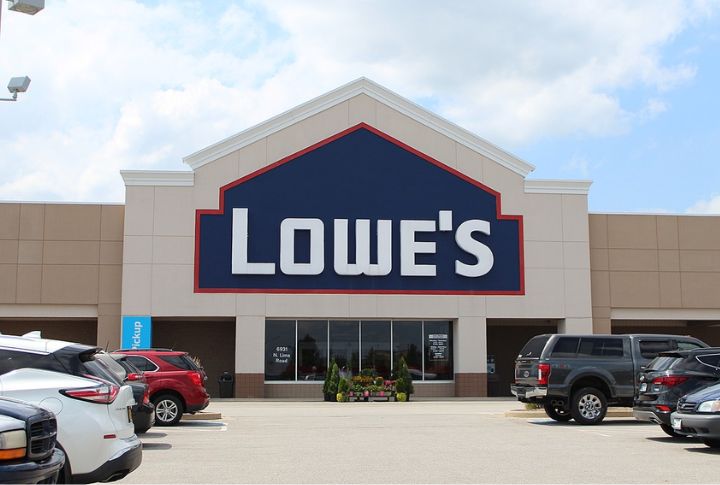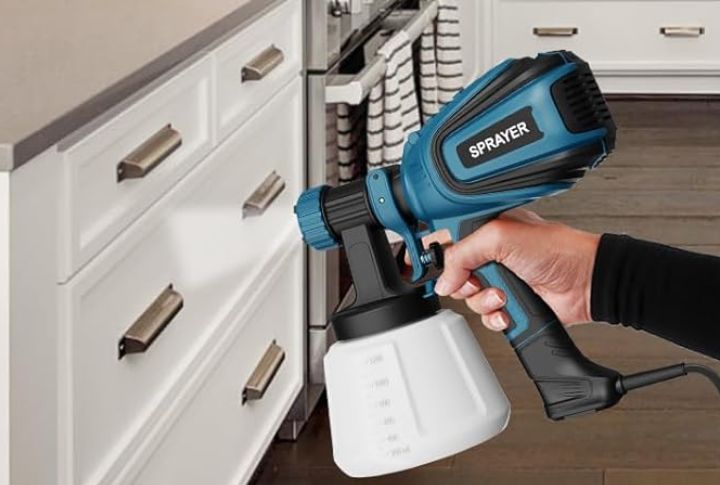
Not every deal in the hardware aisle is a good one. Some products at big-box stores look tempting but fail where it matters most—on the job. What seems like smart savings can quietly cost you more later. Here’s what professionals say you should think twice about before adding to your cart at Lowe’s.
Off-Brand Power Tools

What looks like a bargain in the tool aisle can become a regret on the job site. Many Lowe’s off-brand power tools struggle to keep up with the demands of heavy use as they break under stress. People consistently report frustrations with warranty claims and inconsistent performance.
Pre-Cut Lumber

Ask any seasoned contractor, and you’ll hear the same story: Lowe’s pre-cut lumber arrives full of knots. While it might save time on-site, the tradeoff is precision. For projects that demand clean lines and perfect joins, builders prefer hand-selecting lumber from mills or specialized wood suppliers who guarantee consistent grading.
In-Store Paint Sprayers

The paint sprayers lining Lowe’s shelves may seem capable, but looks can deceive. Many entry-level models cater to casual home users and aren’t engineered for continuous use. Inconsistent spray patterns and clogging are common complaints. Professionals instead rely on industrial-grade sprayers from specialty outlets.
Cheap Plumbing Fittings

Bargain fittings fail to meet the same quality controls as those from professional supply houses. Contractors report premature leaks. These flaws might seem minor until they cause water damage. Spend slightly more on proven fittings, as it can save thousands in repair costs later.
Ready-To-Assemble Cabinetry

Flat-pack kitchen cabinets may look stylish and affordable, but what’s inside matters more than the finish. Many RTA units from Lowe’s rely on particleboard cores that weaken with humidity and repeated use. Remodelers recommend choosing solid wood or plywood cabinetry for kitchens and bathrooms.
Budget-Grade Drywall

Not all drywall panels are created equal. Some low-cost options at Lowe’s have been linked to durability issues. Builders and drywall installers cite inconsistent thickness and weak paper backing. Using higher-grade boards from trade suppliers ensures fewer callbacks and sturdier walls in the long run.
Vinyl Flooring Rolls

At first glance, thin vinyl roll flooring looks like an easy, inexpensive upgrade. But flooring experts know these sheets rarely age well. They tear easily and fade quickly under sunlight. For anyone seeking durability, luxury vinyl planks or engineered hardwood offer better value and aesthetics that won’t wear out in just a few years.
Low-End Exterior Doors

That “affordable” exterior door might save a few dollars today, but it can cost much more down the line. Installers encounter flimsy cores in lower-priced models. A door from a reputable manufacturer with sturdy framing provides far better protection against the weather.
Pre-Packaged Outlet Kits

Electricians shake their heads at pre-boxed outlet kits. These all-in-one sets from retailers like Lowe’s typically include low-grade GFCI outlets or plastic parts that don’t hold up well. Faulty electrical components can cause tripped circuits or even hazards. A safer bet is buying individual, commercial-rated outlets from trusted electrical distributors.
In-Stock Bathroom Vanities

Quick bathroom upgrades lead shoppers to in-stock vanities, but moisture exposure quickly reveals their weakness. Many models rely on MDF or particleboard that swells or peels in humid environments. Home renovators suggest spending a bit more on solid wood with sealed finishes that resist warping and extend longevity.

